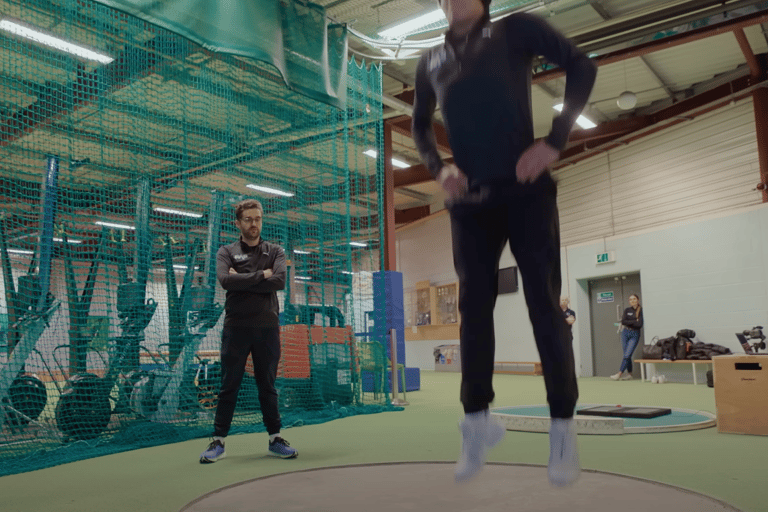
I try all things, I achieve what I can.
🧬 Performance & Longevity Diagnostics: Advanced Testing for a Healthier, Longer Life
Based on Lando Norris Video - How I prepare for an F1 season
LONGEVITY
4/2/20254 min read
I recently watched Lando Norris' video “How I Prepare for an F1 Season” — and what caught my attention was the range of advanced tests he underwent to monitor and optimize his performance. These aren’t just for Formula 1 drivers; many of these diagnostics are now being explored in sports science, preventive medicine, and even longevity research.
Here’s a breakdown of the most interesting tests from his session — what they do, how they help, and how they could be used in broader medical or performance contexts.
🔥 1. Heat Stress Test
Technology: Climate-controlled environmental chamber + metabolic system
HTT is performed according to the following protocol: 120 minutes exposure to 40°C and 40% relative humidity in a climatic chamber while walking on a treadmill, dressed in shorts and T-shirt, at a pace of 5 km/h and 2% elevation.
Function: Assesses thermoregulation, cardiovascular response, sweat rate, and core temperature under heat exposure
Helps with:
Heat tolerance evaluation
Cardiovascular and autonomic function screening
Planning hydration and acclimation strategies
Ideal for:
Athletes preparing for hot climates
Older adults or those with chronic health conditions
Anyone experiencing unexplained fatigue or heat sensitivity
Medical relevance: Early detection of cardiovascular strain, impaired thermoregulation, or autonomic dysfunction — all of which become more relevant with age.
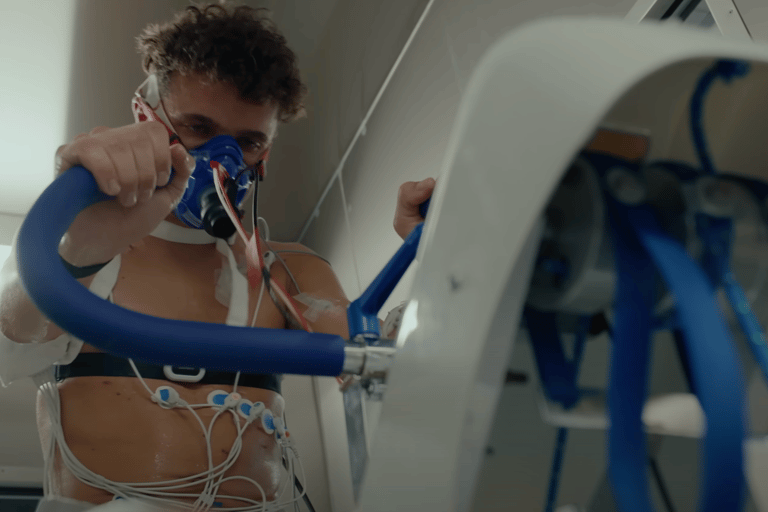

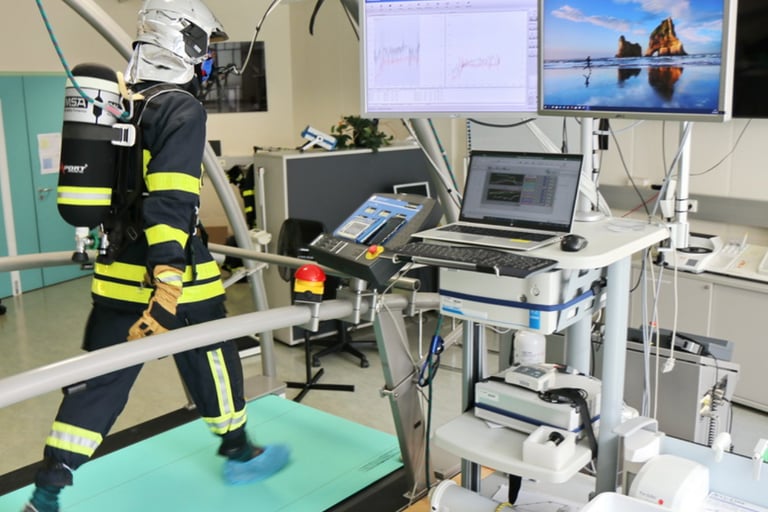

🧪 2. Cardiopulmonary Exercise Testing (CPET / VO₂ Max)
Technology: Treadmill or bike + metabolic cart + ECG
Function: Measures oxygen uptake, heart rate, ventilation, and performance under exertion
Helps with:
Determining aerobic fitness and endurance capacity
Identifying metabolic thresholds
Assessing heart and lung efficiency
Ideal for:
Athletes, runners, cyclists
Individuals interested in longevity and cardiovascular health
Patients with unexplained fatigue or exercise intolerance
Medical relevance: VO₂ max is one of the strongest predictors of all-cause mortality. It’s a valuable diagnostic for cardiovascular disease risk, rehab, and training planning.
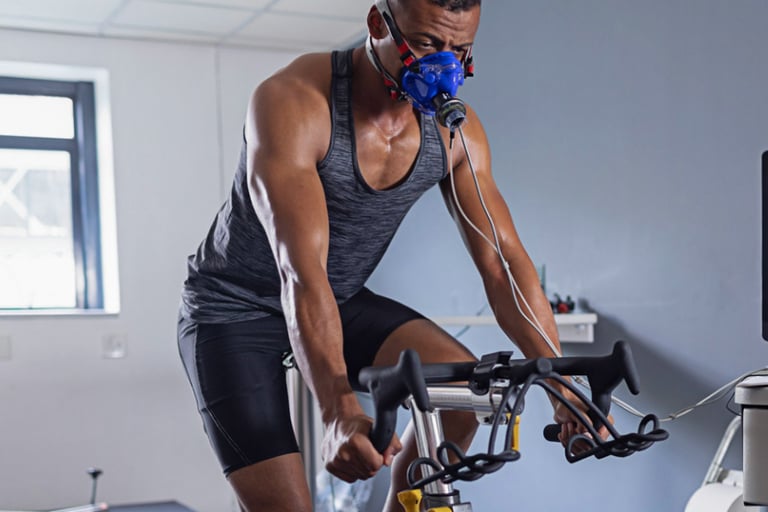

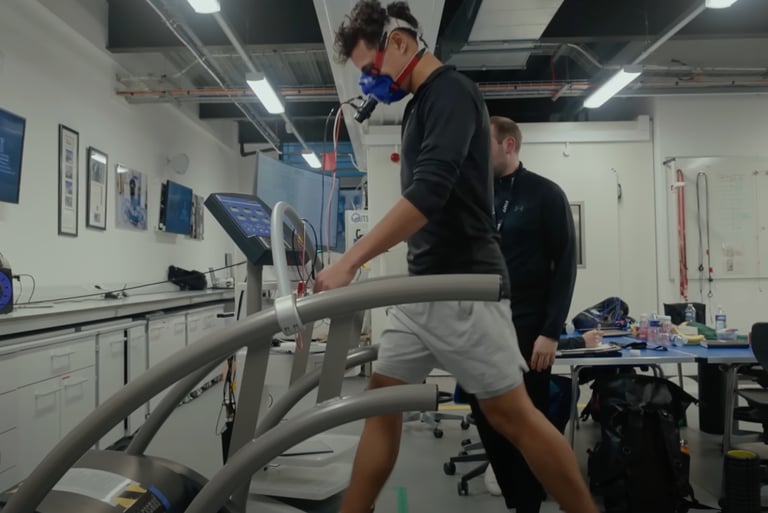

🧬 3. Resting Metabolic Rate (RMR) & Indirect Calorimetry
Technology: Metabolic hood + gas analyzer
Function: Measures how many calories your body burns at rest and your fat vs carb metabolism
Helps with:
Personalized nutrition and weight management
Assessing metabolic flexibility
Detecting signs of metabolic slowdown
Ideal for:
Individuals managing weight or fatigue
Athletes optimizing recovery
Aging individuals wanting to maintain metabolic health
Medical relevance: Key tool for diagnosing metabolic disorders and designing tailored nutritional interventions.
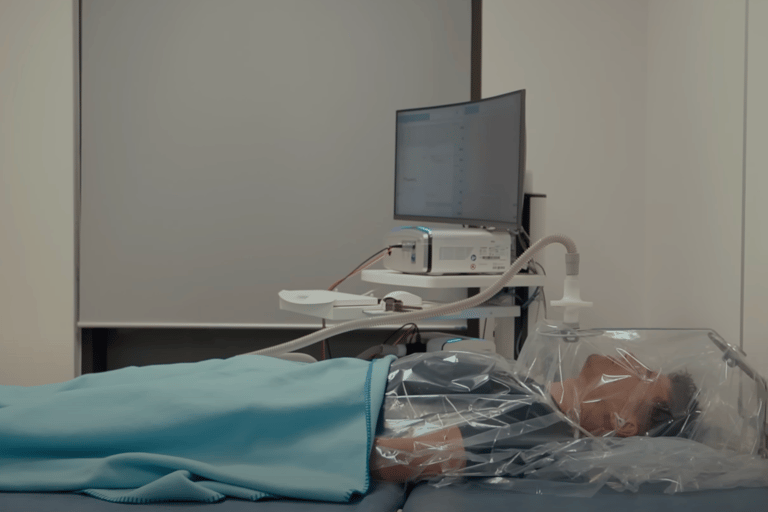

🦴 4. DEXA Scan (Dual-Energy X-ray Absorptiometry)
Technology: Stratos dR body scanner - A DEXA scan (Dual-Energy X-ray Absorptiometry) works by using two low-dose X-ray beams at different energy levels to measure bone density. One beam is absorbed more by soft tissue and the other by bone. By comparing the absorption of each, the machine calculates bone mineral density (BMD). It’s quick, non-invasive, and commonly used to diagnose osteoporosis and assess fracture risk.
Function: Provides detailed analysis of fat mass, lean muscle mass, and bone density
Helps with:
Tracking body composition
Monitoring bone health and fracture risk
Evaluating muscle imbalances and sarcopenia
Ideal for:
Athletes
Postmenopausal women
Anyone tracking fitness or aging-related changes
Medical relevance: Gold standard for early detection of osteoporosis and sarcopenia. Enables highly personalized health strategies.
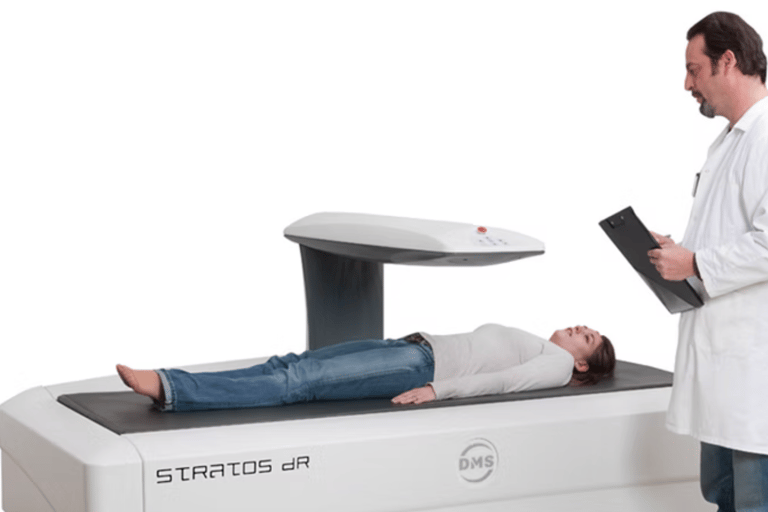

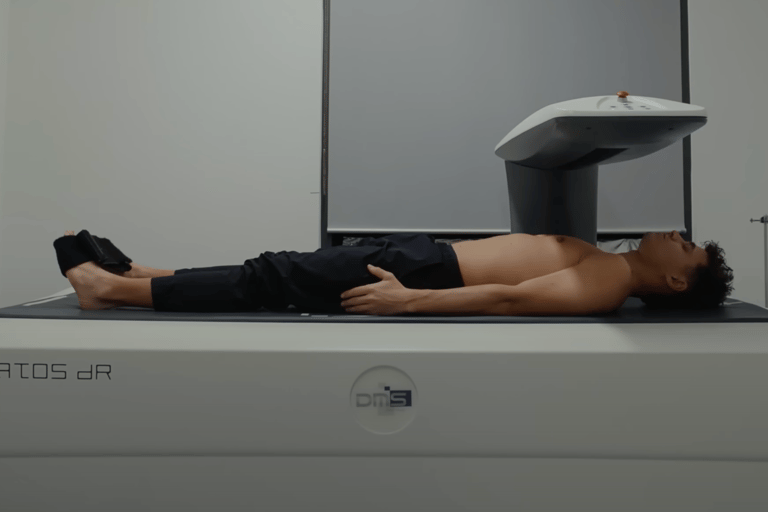

✊ 5. Grip Strength Test
Technology: Digital hand dynamometer
Function: Measures isometric hand and forearm strength
Helps with:
Evaluating general strength
Predicting future frailty and mortality risk
Monitoring training or recovery
Ideal for:
Anyone interested in aging well
Clinical rehab patients
Athletes monitoring neuromuscular function
Medical relevance: Proven marker of longevity, strength, and frailty risk — simple but powerful.
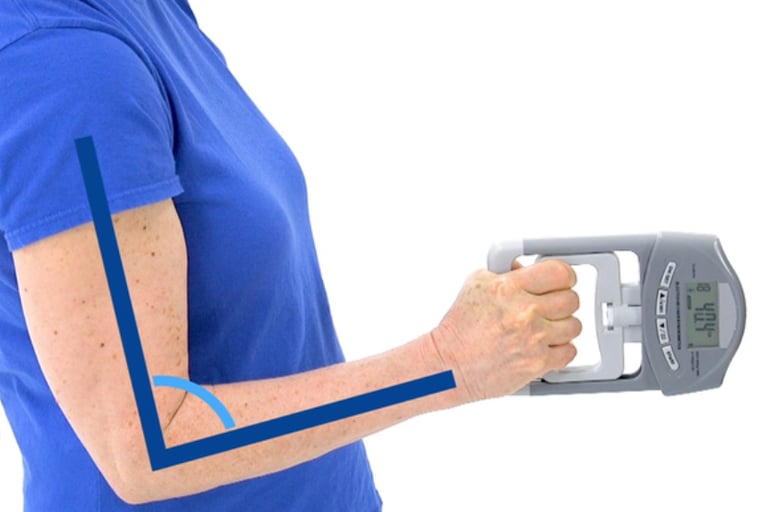

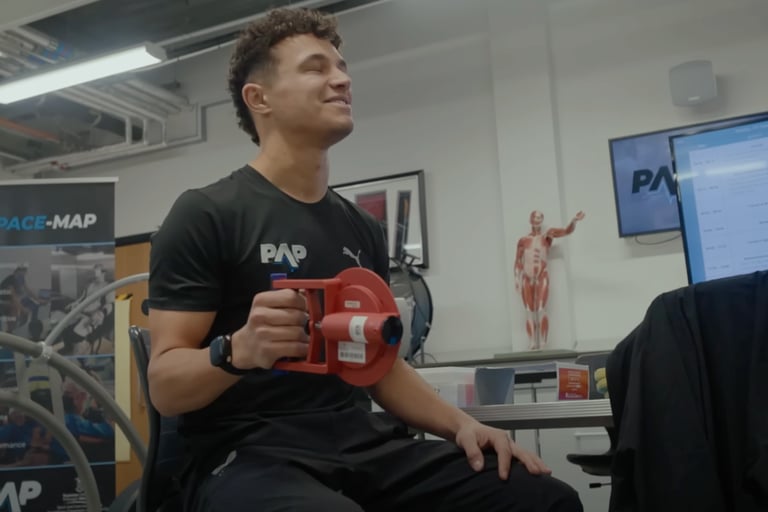

🦵 6. Force Plate Jump Analysis
Technology: Ground reaction force platform
Function: Measures jump height, power, symmetry, and rate of force development
Helps with:
Assessing neuromuscular performance
Detecting injury risk or fatigue
Optimizing athletic training
Ideal for:
Sports performance testing
Sarcopenia detection
Rehab tracking
Medical relevance: Quantifies explosive strength and muscle coordination — critical for fall prevention and mobility in aging.
a bit more here - https://www.scienceforsport.com/countermovement-jump-cmj/
🏋️♂️ 7. Isometric Strength Test (Mid-Thigh Pull or Grip Rig)
Technology: Fixed bar + force sensors
Function: Measures maximum isometric strength and endurance
Helps with:
Profiling strength capacity
Monitoring training or fatigue
Assessing neuromuscular activation
Ideal for:
Strength athletes
Patients in rehabilitation
Individuals tracking age-related strength decline
Medical relevance: Provides accurate strength metrics without risk — highly useful in clinical settings where dynamic lifting isn’t possible.
🎯 How These Tools Fit Into Modern Medicine
Prevention: Detect health issues before symptoms arise
Personalization: Tailor treatment, nutrition, and exercise to your exact physiology
Longevity: Track aging markers, intervene early, and optimize healthy lifespan
Rehabilitation: Monitor recovery progress with precision
Athletic optimization: Help athletes reach peak potential with
